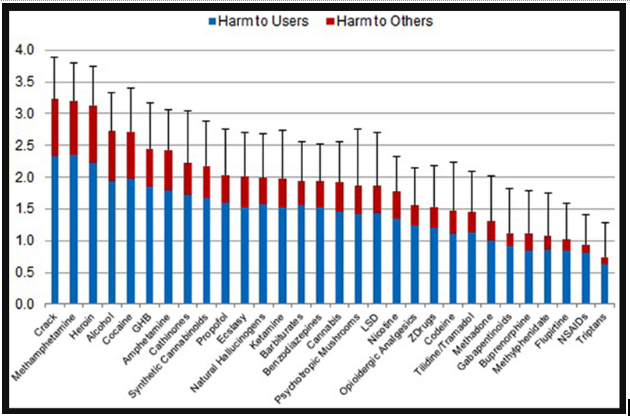What Finally Convinced Me I Needed to Cut Back on Drinking
Editor’s note: This article is part of a four-part series on the author’s relationship with alcohol, with all three articles scheduled for release in “Dry January” 2023. If you haven’t yet, consider reading the first post in this series.
It was late 2019 the first time it occurred to me that I might want to stop drinking. I was in Hawaii with three of my girlfriends, and we were planning to write and share our intentions for the new year on our trip. I remember sitting down to have a hard think about the last time I’d gone more than a few days without drinking. I was considering whether I would try “dry January” for the first time in my life. I was 26, and I could not recall a stretch of more than 3-4 days in the last five years where I had not consumed alcohol.
I decided to try it. I looked at January as a challenge, as a chance to tell my parents I was “totally cool” without the substance. I was excited, but mostly because I hoped it would help me lose the few pounds that come with a holiday season well-celebrated. Surprise, surprise; I didn’t stay dry that whole January. To go from a life suffused with alcohol to quitting cold turkey is no easy feat, and I had none of the intrinsic motivation to make it possible.
Why even try to stop drinking alcohol? From my first post on drinking, you can see that my habits had started to affect my health and happiness. Part of me was just so damn tired of being on the treadmill of binge drink/calorie restriction/binge drink. But it wasn’t until I was hit with the trifecta of drinking deities - Andrew Huberman, Holly Whittaker, and Will Ahmed - that I started to form my own, genuine interest in cutting back.
Why stop drinking alcohol?
An important question requires guides, so allow me to introduce mine: Andrew Huberman is neuroscientist & professor of neurology at Stanford; his podcast on alcohol shook me to my core. Holly Whittaker is an ex-corporate entrepreneur and author; her book “Quit Like a Woman” resonated with my lived experience and put a name to the cultural influences around alcohol that I’d sensed for a decade. Will Ahmed is the founder and CEO of WHOOP; his podcast on alcohol used WHOOP data from hundreds of thousands of people all over the world to validate just how much damage alcohol is causing our bodies. Here’s what what the guides will tell you:
There are virtually zero positive health benefits to drinking
I am loath to share this, but it needs to be said: No amount of drinking is considered safe anymore. Scientists agree on this.
You may be thinking: “But I heard about this study on wine and antioxidants,” or “Blue Zones swear by a drink a day!” The bummer truth is that the amount of red wine you’d have to drink to see any benefit from its antioxidant potential is so vast that the negative effects significantly outweigh the benefit. And the Blue Zones website actually published an article that echoed: “Any level of alcohol is dangerous to your health for the simple reason that alcohol is alcohol.”
In fact, new research shows that chronic alcohol intake, as low as 1 drink per day or 7 per week, can disrupt the brain and significantly increase your overall risk of mortality. Even moderate drinkers should consider cutting back or trying to wean off their alcohol habits if they are at all interested in health and longevity. To keep things in perspective, the same can be said of driving your car or indulging in dessert. “No amount” is considered the safest amount, just like with alcohol. There are other reasons to drive (get somewhere) or have dessert (experience pleasure), and there may be some for alcohol. But let’s stop pretending that health is one of them.
Alcohol is terrible for individual health and happiness
We all know that alcohol is bad for us, but most of us don’t really know why. Let’s start with the fundamental science: Alcohol is a neurotoxin, akin to snake venom and tear gas, that wreaks havoc on our bodies and our minds. It’s also one of the most prevalent mental health disorders on the planet, according to the World Health Organization (WHO).
Alcohol:
Robs you of your focus & productivity. A study published in Nature Communications found that heavy drinking is associated with “brain atrophy, neuronal loss, and poorer white matter fiber integrity.” White matter is important stuff that contributes to your attention, memory, and decision-making and helps keep you from developing psychiatric disorders like depression or Alziemers. The negative associations show up after just 1-2 drinks and become stronger the more you consume.
Makes you anxious & depressed. According to a study published in the Journal of Anxiety Disorders, "alcohol is a central nervous system depressant, which can lead to feelings of anxiety and depression. Furthermore, alcohol disrupts the balance of chemicals in the brain, leading to long-term changes in mood and behavior." The less you drink, the more calm, confident, and vibrant you’ll feel.
Makes you less attractive. Alcohol dehydrates you and inflames your cells, including the ones in your skin. The toxins from alcohol break down your skin cells more quickly, causing you to look older and duller than you are. When you drink less, your skin looks healthier and more youthful.
Messes up your gut. Alcohol is chaos to the digestive tract. If you drink regularly, you’re likely signing up for acid reflux, diarrhea, gut flora imbalance, and leaky gut, to name a few. Less drinking means a flatter/firmer tummy, no gas or bloating, fewer emergency trips to the restroom and reduced chance of long-term GI issues like I’ve dealt with.
Kills your immune system. People who drink regularly are way more likely to get sick than those who don’t. I have experienced this acutely; the last three times I came down with a nasty cold, I was out drinking with friends the night before. Thanks, Comet Club!
Is a leading source of cancer. Alcohol is a known carcinogen and has been linked to an increased risk of several types of cancer, including cancer of the mouth, throat, esophagus, and liver. It’s also a known factor in breast cancer.
Can lead to lasting liver damage. The liver is responsible for filtering toxins out of our blood, and alcohol is a very toxic substance. Over time, exposure to too much alcohol can lead to inflammation and scarring of the liver, which can lead to liver failure. My “fun” grandma, who filled a tumbler with Franzia each morning, passed away recently from cirrhosis of the liver.
It’s hard to put it better than Holly Whittaker, author of “Quit Like a Woman,” when she says:
We read labels. We shun gluten, dairy, processed foods, and refined sugars. We buy organic. We use natural sunscreens and beauty products. We worry about fluoride in our water, smog in our air, hydrogenated oils in our food, and we debate whether plastic bottles are safe to drink from. We replace toxic cleaning products with Mrs. Meyer’s and homemade vinegar concoctions. We do yoga, we run, we SoulCycle and Fitbit, we go paleo and keto, we juice, we cleanse. We do coffee enemas and steam our yonis and drink clay and charcoal and shoot up vitamins and sit in infrared foil boxes and hire naturopaths and shamans and functional doctors and we take nootropics, and we stress about our telomeres (these are all real words). We are hypervigilant about everything we put into our body, everything we do to our body. And we are proud of this. We Instagram how proud we are of this and follow Goop and Well + Good and drop forty bucks on an exercise class because there are healing crystals in the floor. The global wellness economy is estimated to be worth four trillion dollars. Four trillion dollars. We are on an endless and expensive quest for wellness and vitality and youth. And we drink fucking rocket fuel.
Alcohol is worse for society than weed, mushrooms, or MDMA
Living and studying in Amsterdam during my junior year of college was transformational in so many ways, but one that I’m especially proud of is the way my global socio-political senses expanded. I remember sitting in my small Dutch Policy class, just twenty or so people, where we learned about the pragmatic and harm reductionist policies that are cornerstones of Dutch society. Surprisingly, it’s the first place I was offered even a hint at how bad alcohol is for not just the individual, but for societies as a whole.
All my life, I’d assumed consumption of alcohol was both “normal” and “natural.” Having grown up in a religious household, I’d seen mentions of wine dating back as far as the Old Testament. If Jesus drank wine, it couldn’t be too bad for you, right? In reality, humans have always been curious about altered states of consciousness. That in and of itself is not a problem, if used wisely.
However, we as a global society have adopted the blanket belief that alcohol is part of a normal healthy diet - not a drug - and even healthy in moderation. In reality, it’s one of the top 5 most destructive drugs to both self and society, only surmounted by crack, heroin and meth. By contrast, weed, psilocybin, and MDMA are all in the mid-range of this list.
I first saw this chart in that Dutch Policy class in Amsterdam. If you’ve ever wondered how or why the Netherlands has historically been much more lax on the legality of cannabis or mushrooms, it’s not because they love drugs. It’s because they know humans are naturally curious about altered states of consciousness, and are likely to do drugs whether they’re legal or not.
Legalizing and regulating the use of the low to medium-harm drugs allows the government to oversee production and distribution, which helps standardize products and ensure they’re as safe as possible. This is “harm reduction” in action. It also allows the government to tax the revenue generated by these businesses, rather than have these transactions take place under the table. This is “pragmatism” in action.
To stop drinking is to prove you can
Something else Whittaker said in her book struck a chord with me. It flashed a mirror on the girl I was back in 2019, staring down my first dry January through slitted eyes:
“The truth is that anyone who consumes alcohol and can’t live without it is to some degree hooked on it, regardless of whether it’s a glass a week or a bottle a night.”
The girl I was couldn’t picture a week without alcohol in it, much less a month. Three years later, I’m proudly participating in “dry January” for a third time, and not only does it feel welcome and effortless, it feels exciting and fun. It’s pushed me to seek out friends who are similarly curious about sobriety and spaces that don't require drinking, like breathwork, ecstatic dance, and a life coaching class. It’s challenged me to go out with friends, say no to a cocktail, and have fun anyway.
While I don't yet plan to give up drinking entirely, I’m proud to be building a muscle around conscious consumption and building a life that doesn’t revolve around alcohol in the first place. In my next post, I explore all the reasons it’s so hard to give this stuff up for good.
Up Next:
Why People Like Alcohol, Psychologically & Otherwise
Why It’s So Hard (For Me) to Quit Drinking
How I Actually Cut Back on Drinking (+ Tips To Get You There, Too)


